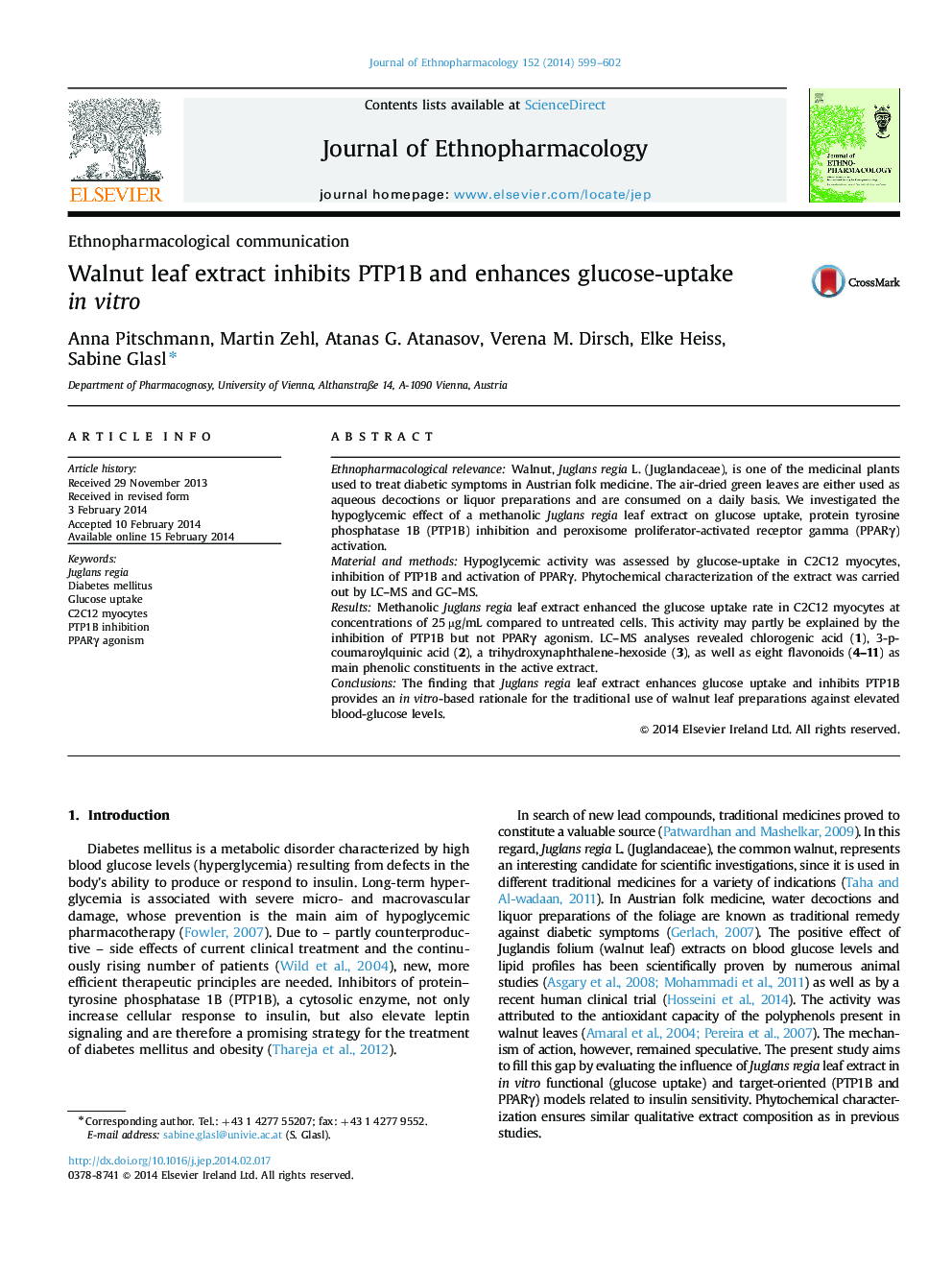| Article ID | Journal | Published Year | Pages | File Type |
|---|---|---|---|---|
| 2545421 | Journal of Ethnopharmacology | 2014 | 4 Pages |
Ethnopharmacological relevanceWalnut, Juglans regia L. (Juglandaceae), is one of the medicinal plants used to treat diabetic symptoms in Austrian folk medicine. The air-dried green leaves are either used as aqueous decoctions or liquor preparations and are consumed on a daily basis. We investigated the hypoglycemic effect of a methanolic Juglans regia leaf extract on glucose uptake, protein tyrosine phosphatase 1B (PTP1B) inhibition and peroxisome proliferator-activated receptor gamma (PPARγ) activation.Material and methodsHypoglycemic activity was assessed by glucose-uptake in C2C12 myocytes, inhibition of PTP1B and activation of PPARγ. Phytochemical characterization of the extract was carried out by LC–MS and GC–MS.ResultsMethanolic Juglans regia leaf extract enhanced the glucose uptake rate in C2C12 myocytes at concentrations of 25 µg/mL compared to untreated cells. This activity may partly be explained by the inhibition of PTP1B but not PPARγ agonism. LC–MS analyses revealed chlorogenic acid (1), 3-p-coumaroylquinic acid (2), a trihydroxynaphthalene-hexoside (3), as well as eight flavonoids (4–11) as main phenolic constituents in the active extract.ConclusionsThe finding that Juglans regia leaf extract enhances glucose uptake and inhibits PTP1B provides an in vitro-based rationale for the traditional use of walnut leaf preparations against elevated blood-glucose levels.
Graphical abstractFigure optionsDownload full-size imageDownload high-quality image (191 K)Download as PowerPoint slide
